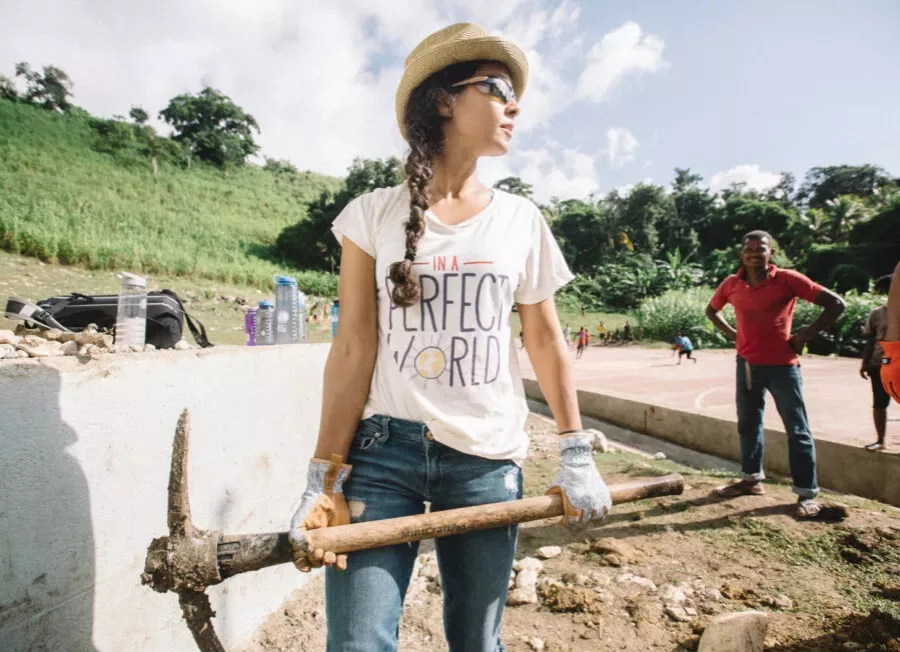
Manuela Testolini founded In a Perfect World (IAPW) in 2005 to empower youth to be compassionate, socially conscious leaders. In 2008, IAPW launched the REACH (Rural Education and Community Harmony) initiative empowering young people in developing countries through access to education. Since then, IAPW has funded the construction of 34 schools in 8 different countries where more than 8,000 children, parents, and grandparents are educated daily.
Below is a reflection from Manuela’s first trek to Haiti in 2015, to see her impact firsthand and help install solar power in a school funded by IAPW.
Two days before my departure, I hand my soon-to-be 4-year-old daughter, Lucia, a solar dancing plant. She asks what it is, and I use it to explain to her how we get energy from the sun to make electricity. I tell her that I have to go to Haiti to help put solar panels on the school that we built there. It’s the first time I’ve ever left my children. Lucia says she is worried that she will miss me too much but then tells me that she wants the kids in Haiti to have lights in their school like she does at preschool. She helps me pack and with a combination of excitement and anxiety, I’m on my way. Hoping that I am setting an example for Lucia that she will understand and appreciate in my absence.
I arrive in Haiti during a time when post-election Port-au-Prince is unsettled. There are protests, or demonstrations as they called them, in and around our hotel. I see fires burning from my window. I hear shots ring. It all immediately brings me back to the terror attacks in Mumbai that I survived several years prior. I am anxious to get out of the city and into the villages so that I can see our schools and immerse myself in the culture, but traveling to the villages is an arduous undertaking. Six or seven hours away from Port-au-Prince on a road that goes from paved to gravel to dirt. We pass mothers and their children along the way and I wonder what my kids are doing. Without access to electricity or cell phone towers, I will have to wait several days to find out. I am suddenly awakened from my daydream by the sounds of drums and singing. I look up and find our 4×4 surrounded by what seems like the entire village. They’ve come to greet us and to parade us into the village from about 1 mile out. I get out of the car and am swallowed up by the crowd, dancing and singing with them. I look around and soon realize that most of the women around me are wearing red t-shirts all with random logos and sayings. I ask my translator what the red represents and he says, “these are the women in the adult literacy program. They wear red as a uniform.”
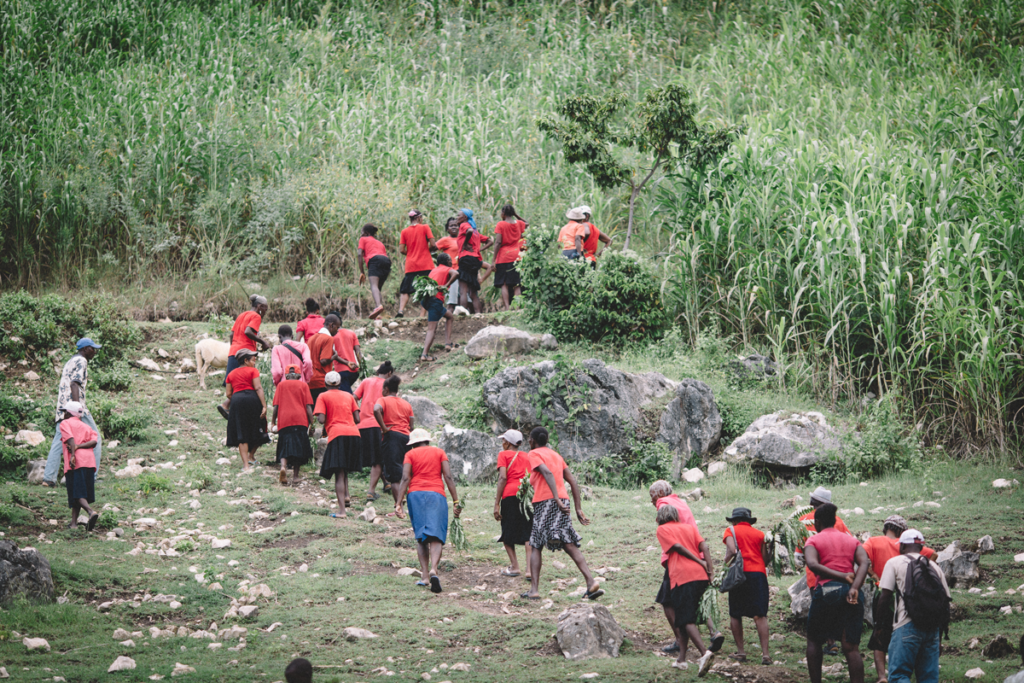
Over the next several days, I wield a pickaxe to dig trenches for the solar panel crew, play Jenga with our house father, do the chicken dance with students at the school, and sit in with the women in the adult literacy program. It is all life-changing. But there are a couple of moments that stand out in my mind.
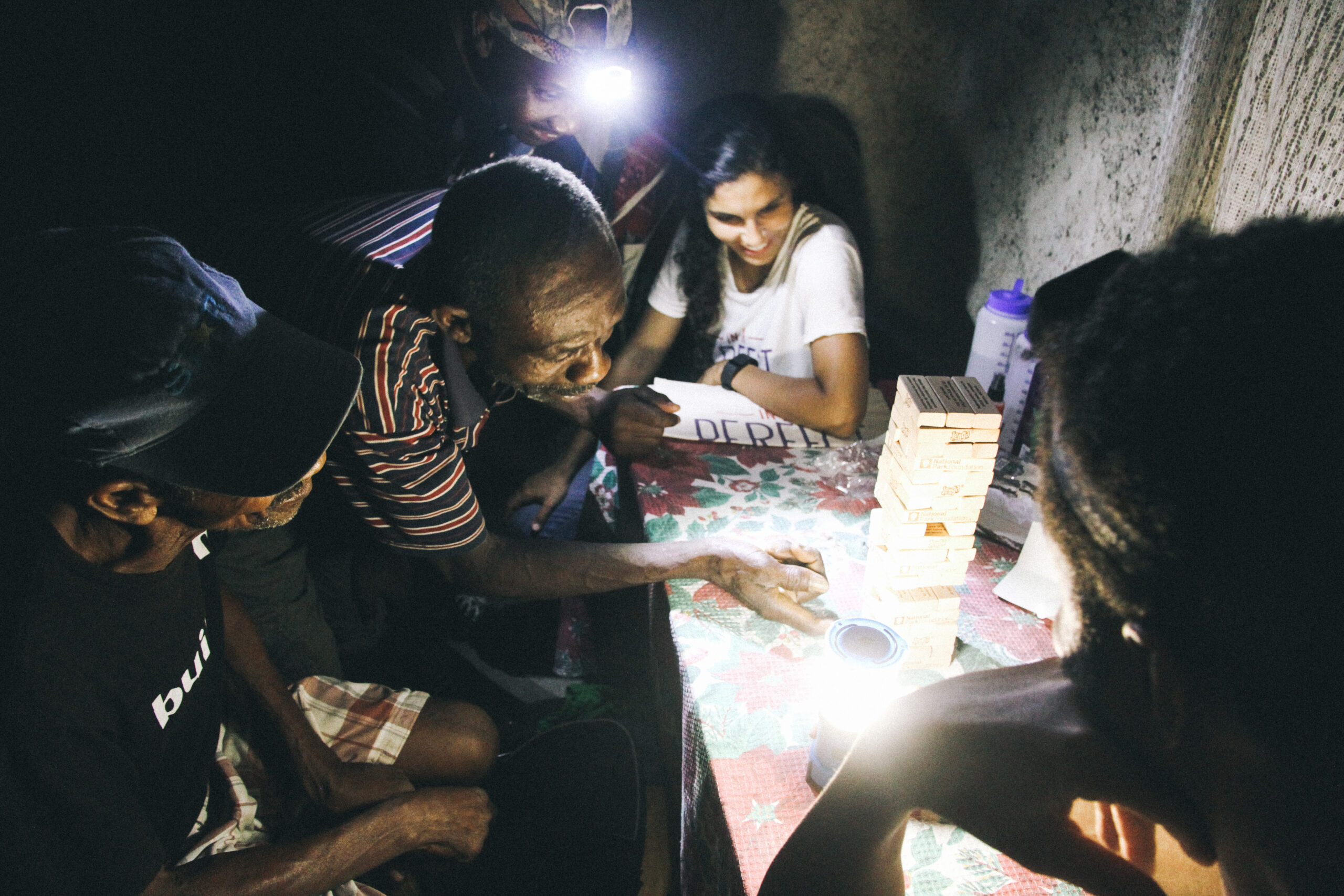
One evening, I find myself in one of the classrooms of our school, standing with my translator listening to a group of women sing. There they are in their red shirts, singing in Haitian Creole and beaming from ear to ear. When I ask what they’re saying, he explains that they are singing “I will never write an X again” in reference to not being able to read and write anything, including their names, and having to sign an “X” instead. I immediately think of Lucia, at home, practicing her letters, lining up L – U – C – I – A just perfectly for the first time. She was so proud of herself. I see the same pride overflowing out of these women now; some of them in their 50s, 60s, and 70s learning to read and write for the first time.
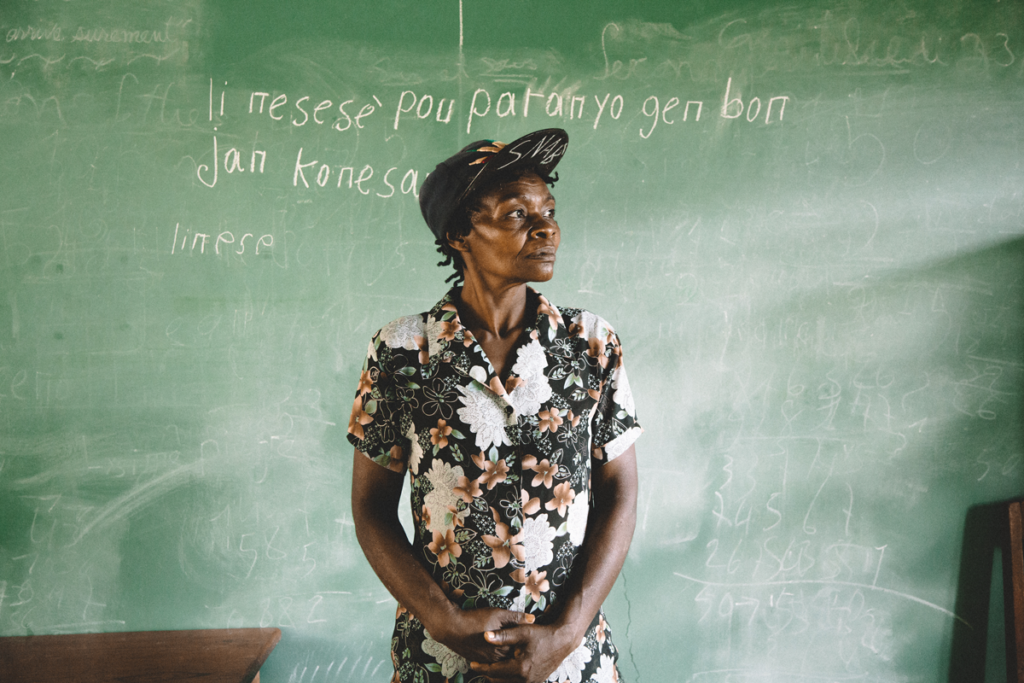
I ask them how their lives have changed by knowing how to read and write. The answers vary: One woman says that she now knows that her vote counts because she can both read the names of the candidates AND write her own name at the polling station. Another woman talks about no longer being cheated at the market. And one talks about simply being happier and nicer to her children. This same woman was digging in the trenches with me earlier that day; me with my safety goggles, pickaxe and protective gloves, she with bare feet, digging with her hands. When I asked why she was digging when there were enough people to handle the work, she said, “I want to be part of the exciting changes in my community. I want to show that I am grateful and help as much as I can.” All of these women feel empowered because they now have a voice.
The next morning, I spend time with the children in the school. They’re older than I expect, as I forget for a moment that many of these kids have been in and out of school, left behind, and not able to pass onto the next grade. A few of the older children speak some French. It is our common language for the moment. I ask them about their families and tell them about mine. I ask what it’s like to have a proper school to go to and how long it takes them to get there. Some of the these children walk over an hour to attend this school because they either don’t have a school in their village or the school is nothing more than a chalkboard leaning against a tree, leaving them unprotected from the elements, the insects and other distractions. It also often leaves them without a teacher, because it is certainly hard to motivate someone to teach in those circumstances as much as it is to motivate children to learn. I ask the kids what they want to be when they grow up. A group of girls tell me they’d like to be doctors and teachers and farmers. They are very sure of themselves. I am very sure of them, too.
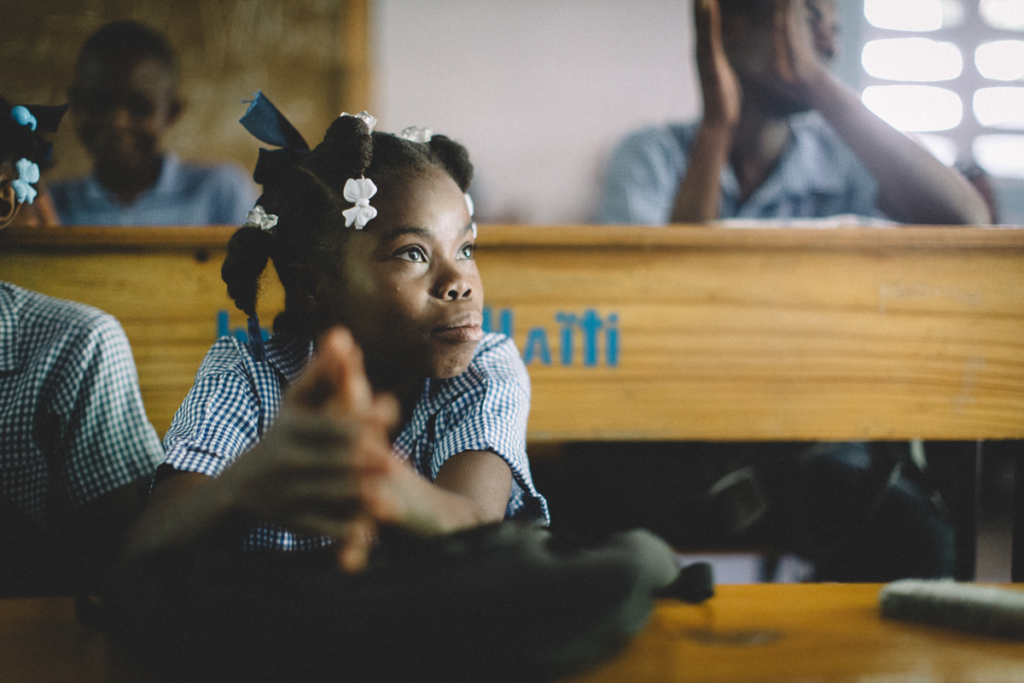
People in the community thanked me over and over in different ways. They thanked me for being brave enough to leave my children to come and help theirs. They thanked me for thinking them worthy of having a school built in their village. They thanked me for helping to lift their children up so that they can be more than their parents. They thanked me for believing in them. It is all very overwhelming and the most I can do is thank them back with a lump in my throat. While I’m anxious to get back to my children, it really isn’t easy to leave the village. I immediately think about how and when I will return. The whole experience fortifies my belief in the power of education. I’m proud to partner with buildOn to empower communities by constructing schools in the some of the poorest countries with the highest illiteracy rates. As a mother of two girls, it is that much more important to me to support and invest in women, young and old, in the developing world. They have the power to lift their communities and to break the cycle of poverty. And we have a duty and privilege as women in the developing world to do our part to make sure that happens.
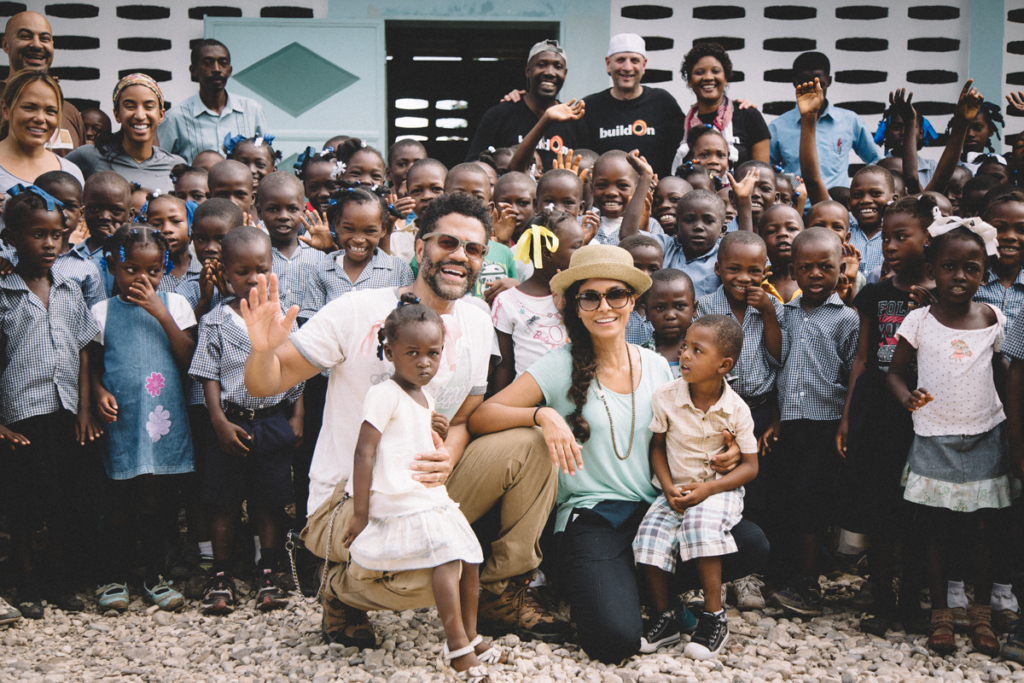
All Photos by Jonathan Lipking for In a Perfect World
